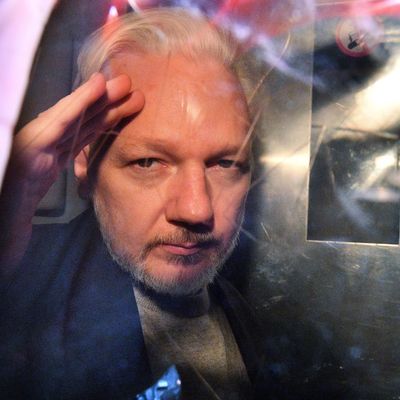
The founder of WikiLeaks, Julian Assange, was indicted on Thursday on 17 counts of violating the Espionage Act for his part in publishing classified military documents in 2010. Assange had previously been indicted for a charge of conspiring to commit unlawful computer intrusion, and was removed from the Ecuadorian Embassy in April, bringing a sudden end to his seven years spent in the building.
The documents published by Assange were originally obtained by Army intelligence analyst Chelsea Manning and include videos of U.S. soldiers shooting 19 Iraqis from a helicopter and a quarter-million diplomatic cables. Manning served seven years of a 35-year sentence for her role in the leak; President Obama commuted her remaining time in January 2017.
The indictment immediately raises questions regarding First Amendment rights. As the New York Times states:
Legal scholars believe that prosecuting reporters over their work would violate the First Amendment, but the prospect has not yet been tested in court because the government had never charged a journalist under the Espionage Act.
Though he is not a conventional journalist, much of what Mr. Assange does at WikiLeaks is difficult to distinguish in a legally meaningful way from what traditional news organizations like The New York Times do: seek and publish information that officials want to be secret, including classified national security matters, and take steps to protect the confidentiality of sources.
Assange was indicted under the Espionage Act of 1917, which was passed with the intention of prohibiting interference in military operations. The act has been invoked in the charges against Chelsea Manning, Edward Snowden, communists Julius and Ethel Rosenberg, and Pentagon Papers whistle-blower Daniel Ellsberg. By citing the act in the indictment, the Justice Department made clear that it considers Assange a whistle-blower, not a reporter. “The department takes seriously the role of journalists in our democracy and we thank you for it,” John Demers, head of the Justice Department’s national security division, said on Thursday. “But Julian Assange is no journalist.”
The American indictments aren’t the only legal jeopardy the WikiLeaks founder is currently facing. On May 1, Assange was sentenced to 50 weeks imprisonment in the U.K. for a bail violation. And upon his involuntary departure from the Ecuadorian Embassy in London, Swedish prosecutors agreed to reopen an investigation into a 2010 allegation in which Assange was accused of rape.






























